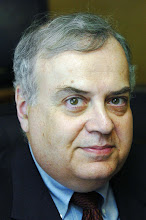Broadcast news
A lean-in-your-face kind of interviewer, Snyder made staying up late to watch him talk with a variety of personalities and newsmakers -- from Charles Manson to John Lennon -- authentic must-see TV.
Quick witted and incisive, with a bellowing laugh from out behind a cloud of cigarette smoke, Snyder was someone who truly fit the description of one of a kind.
Tom Snyder died the other day after a long illness. If you never saw him work, you don't know what you missed.
Speaking of broadcasters -- from the sublime to the ridiculous -- the New York Yankees have too many of them, and several aren't doing listeners any good.
John Sterling has his entertaining signature calls going for him, but he may be the single worst radio play-by-play man in the history of baseball. You simply can't follow the game on most of his initial descriptions. And his eyesight apparently is worse than mine; how else can he miss so many plays?
Suzyn Waldman plays straight woman to Sterling. She's a decent clubhouse reporter and interviewer. But she adds little insight to the game broadcasts.
Meanwhile, the revolving door crew of TV announcers is OK. But there's little continuity and, in the case of Al Leiter and Bobby Murcer, surprisingly few pearls of wisdom.
Here's the way I'd schedule and place this bunch on a regular basis:
On TV, Ken Singleton, Joe Girardi and Paul O'Neill in the booth, Bob Lorenz in the studio, Suzyn Waldman the roving reporter/interviewer. On radio, Michael Kay (who talks too much for TV) and John Flaherty in the booth, with Kim Jones the roving reporter/interviewer.
John Sterling? If you still want him on the payroll, let him continue to narrate the "Yankeeography" series.
Al Leiter, Bobby Murcer and David Justice? Not all good players are successful announcers. See you on Old Timers Day.
 RSS
RSS


